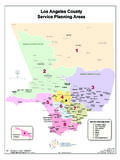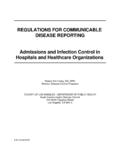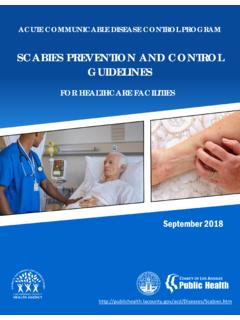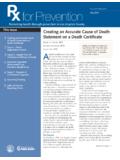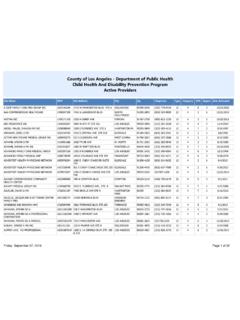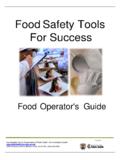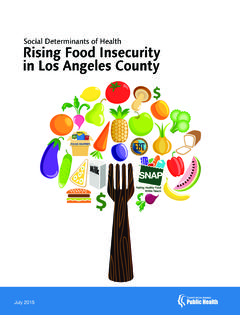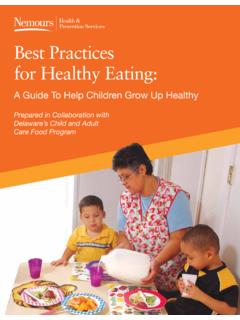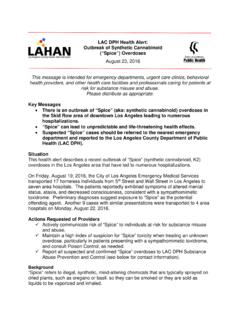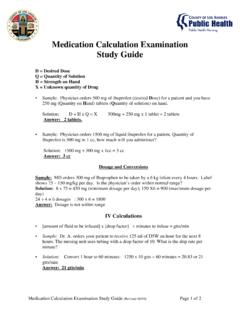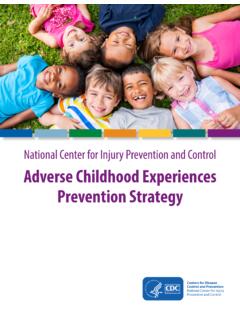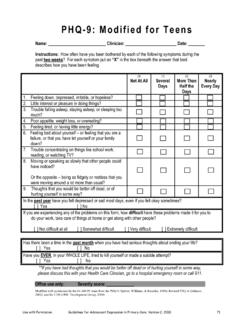Transcription of INTIMATE PARTNER VIOLENCE RESOURCES • …
1 Reaching OutINTIMATE PARTNER VIOLENCERESOURCES INFORMATION SAFETYDear Reader,This booklet is named Reaching Out for two reasons. First, we are reaching out to you. If INTIMATE PARTNER VIOLENCE (also called Domestic VIOLENCE ) is impacting you in any way, whether you are a victim, survivor, friend, family member, co-worker, or person causing harm, we want to help. Second, we want to encourage you to reach out for help and support. INTIMATE PARTNER VIOLENCE can make you feel alone, scared, frustrated, confused, angry, and hopeless. Whether you need confidential advice, support at 2 AM, free emergency shelter, free or low-cost legal help, or want to report a crime or find a hotline for someone who is being abusive, there are agencies that can help and provide support, without judgment. This booklet will tell you how to reach those you use this information today, tomorrow, a year from now or simply choose to pass it on, know that help is SheedyEXECUTIVE DIRECTORLOS ANGELES COUNTY DOMESTIC VIOLENCE COUNCILR eaching OutCONTENTSW here to Turn for Help 2 Hotlines3 Additional Public RESOURCES 4 What is INTIMATE PARTNER VIOLENCE ?
2 6It Could Happen to Anyone8 Abuse in LGBTQI+ Relationships9 Safety Measures 10Be Prepared12 Families Impacted by IPV14 Intervention Programs15 Drug and Alcohol Use16 Additional Information18 Learn More About INTIMATE PARTNER Violence202 WHERE TO TURN FOR HELPIf you or someone you know is in danger right now, CALL 911 Should I call a hotline?Hotlines are available 24-hours a day, seven days a week, and are almost always confidential. Individuals can call to talk to someone, discuss what options are available and get referrals to supportive services. Friends, family, and coworkers can also call for advice about reaching out to people experiencing INTIMATE PARTNER VIOLENCE (IPV) and can get referrals to supportive kind of help is available? While not all agencies provide all types of services*, agencies may provide: Legal services, including help with protective orders and immigration issues Temporary confidential emergency shelter for people experiencing IPV and their children Transportation to shelters, when needed Counseling Referrals to medical, financial, child care, and employment services Children s programs Temporary shelter for pets or referral to places that will care for your pets Referrals to substance abuse services* Most services are freeLos Angeles County Domestic VIOLENCE Hotline(800) 978-3600 This hotline will connect you to an agency that provides safe and supportive services at no cost.
3 This hotline is available 24/7 and it confidentially connects you to a service Domestic VIOLENCE Hotline(800) 799-SAFE (7233)(800) 787-3224 (TTY) This hotline is available to people experiencing IPV, their friends and family, and people who are (or feel they are in danger of) causing harm to their PARTNER . This hotline can connect callers to local RESOURCES . It is available 24/7, and it is confidential. Love Is Respect (24/7) (866) 331-9474(866) 331-8453 (TTY) or Text LOVEIS to 22522 (texting may incur a fee depending on your wireless plan)This resource is designed to educate and empower young people to prevent and end abusive relationships. This hotline is available 24 PUBLIC RESOURCES211 Los Angeles County Information Call Center (24/7)Dial 2-1-1 LA is the main source for information and referrals for health and human services in LA Angeles County Elder Abuse Hotline (24/7)(877) 477-3646 (877-4-R-SENIORS) an elder or dependent adult is being abused or is in immediate danger of being abused, call 911.
4 In other circumstances, you can report elder or dependent adult abuse by calling the Elder Abuse Hotline. Bureau of Victims Services, Los Angeles County District Attorney s Office(800) 380-3811 essential services to crime victims in Los Angeles County, including crisis intervention, emergency assistance, counseling referrals, court escort and orientation, restitution assistance, and case status Information and Notification Everyday (VINE)(877) 411-5588(866) 847-1298 (TTY) the person who harmed you, or someone you know has been taken into the Los Angeles County Jail system, you may register with VINE and you will be notified when the person is released, transferred, or moved within the jail system. 5 Safe at Home(877) 322-5227(916) 651-1304 (TTY/ TDD) victims of IPV, stalking, sexual assault and human trafficking with a substitute mailing address to help prevent them from being located at their residential Victim Compensation & Government Claims Board(800) 777-9229(800) 735-2929 (TTY) compensation for victims of violent crime who are injured or threatened with injury.
5 Some types of crime-related expenses that may be covered are income loss, relocation, mental health services, and home or vehicle modifications for victims who have become disabled. Los Angeles County District Attorney s Office(213) 974-3512 all felony crimes in the County and misdemeanor crimes in certain cities and unincorporated areas, including family VIOLENCE crimes. Los Angeles City Attorney s Office(213) 978-8100 (Main number, can be used to reach branch offices)(213) 202-5400 (Family VIOLENCE Unit) Prosecutes all misdemeanor crimes in the City of Los Angeles, including family VIOLENCE IS INTIMATE PARTNER VIOLENCE ?People use VIOLENCE and abuse in INTIMATE PARTNER relationships to gain power and control over their PARTNER . Sometimes people confuse INTIMATE PARTNER VIOLENCE (IPV) with rage or uncontrolled anger. IPV is a cycle or pattern of repeated behaviors used to get power and control over a PARTNER .
6 Threats and IntimidationHarassmentEconomic Control Threatening to harm a PARTNER , their children, family members and/or pets Using physical size and strength or weapons to intimidate Reckless driving designed to threaten or scare the PARTNER Threatening to call authorities to deport the PARTNER or their children Embarrassing or threatening the PARTNER in public or on social media Monitoring and keeping tabs on the PARTNER s movements and contacts Constant and repeated contact after being told to stop Unwanted contact with the PARTNER s friends, family members or job Refusing to work or stopping financial support Limiting or denying access to shared income, RESOURCES or assets Interfering with or sabotaging the PARTNER s work or education Damaging or destroying the PARTNER s credit scoreCONDUCTEXAMPLES7 CONDUCTEXAMPLESD estruction of PropertySexual ViolencePhysical AbuseIsolationVerbal Abuse Damaging furniture, personal belongings or cars Punching or kicking holes in walls/doors Damaging or hiding adaptive equipment/medication for partners with disabilities or medical conditions Rape or demanding sexual acts from an unwilling PARTNER Reproductive coercion (controlling pregnancy, forced unprotected sex, interfering with birth control methods)
7 Hitting or slapping, pushing, punching or kicking Strangulation/choking Over-medicating or under-medicating partners Preventing access to accommodations for partners with disabilities or medical conditions Stopping PARTNER from seeing friends and relatives Moving away from friends and family Constant criticism and embarrassing remarks Name-calling, yelling, swearing/cursing Gaslighting (making a PARTNER question their own sanity)Violent and abusive behavior can take many forms; below is a table that explains many kinds of IPV. Not all the listed types of abuse are crimes, but if you feel that you or someone you know is in danger of harm or is being threatened with harm, call COULD HAPPEN TO ANYONEWhen abuse is occurring in your relationship, you may feel like you are the only one it is happening to. The reality is that INTIMATE PARTNER VIOLENCE happens in all communities and can happen to anyone: regardless of your gender identity, race, ethnicity, age, sexual orientation, income, or appearance.
8 Every person experiencing INTIMATE PARTNER VIOLENCE deserves help and support.*Contact sexual VIOLENCE includes rape, being made to penetrate someone else, sexual coercion, and/or unwanted sexual of impacts include being fearful, concerned for safety, needing medical care, help from law enforcement, having missed work or school, needing housing or victim advocate services, etc. 1in 4 WOMENandIn the United States, while 1 in 3 men and women 1in 10 MEN are IMPACTED by INTIMATE PARTNER VIOLENCE 54 % transgender of26%G AYandof44%LESBIANof9In addition to the types of abuse listed in the previous pages, abusive partners in some LGBTQI+ (lesbian, gay, bisexual, transgender , queer, questioning, intersex, and additional identities) relationships may use additional power and control tactics. Examples of these include: Outing or threatening to out the PARTNER s sexual orientation and/or gender identity to family, employers or others Telling the PARTNER that they deserve the abuse because of their gender identity and/or sexual orientation Saying that the abuse is mutual or consensual, including when there is a law enforcement responseFor additional information, visit is-this-abuse/lgbt-abuse/ABUSE IN LGBTQI+ RELATIONSHIPSIf you are living with a person who is abusing you, whether or not you want to leave the relationship, it is a good idea to contact a domestic VIOLENCE agency to help you create a safety plan.
9 In addition, here are some things you can do that can help protect you and your the numbers of friends and family members (or make sure they are saved in your phone) so you can call in an emergency. If your children are old enough, teach them important phone numbers, including when and how to dial in touch with friends and get to know your neighbors. People may exert control in a relationship by limiting their PARTNER s access to their support network, including their friends, neighbors, and family. Try not to cut yourself off from people - even if you feel like you want to be left alone. Open your own bank account, if you can, or have money available to you if you need it in a MEASURESKeep this booklet where the person hurting you won t find it, but where you can get it when a code word with friends and family to signal them when you need an escape plan for you and your children to use in the case of an emergency.
10 Contact a domestic VIOLENCE agency by calling the Los Angeles County Domestic VIOLENCE Hotline at (800) 978-3600 for assistance. 1112BE PREPAREDHere is a list of information and items you may need for safety and/or if you decide to leave. Keep all information in a safe place. Think about saving the information/copies of documents on a USB memory stick (flash drive) that you can protect with a : Domestic VIOLENCE agencies have staff available to help you develop a safety plan, whether you choose to leave the relationship or not. Call a hotline listed on page 3 of this booklet for referrals to agencies that can help. 1. Important phone numbers: Police: 911 and your local police department Los Angeles County Domestic VIOLENCE Hotline: (800) 978-3600 An attorney (if you know one)132. Contact information for friends or family members3. Telephone numbers and addresses of places you can go to if you must leave in a hurry4.
